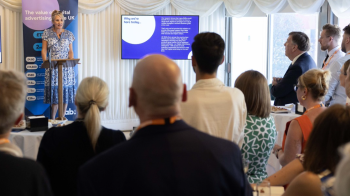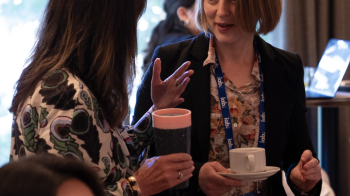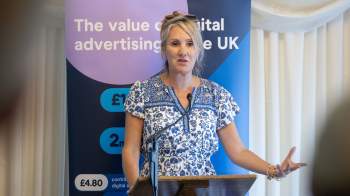FAQs: What’s happening with the Online Advertising Programme?
Posted on Thursday 27 July 2023 | IAB UK
We answer key questions about the Online Advertising Programme (OAP) - including what the Government’s response means for our industry and what IAB members should do next
What is the Online Advertising Programme?
The Online Advertising Programme (OAP) was launched by the Government to review the regulatory framework of paid-for online advertising to assess whether it is fit-for-purpose and sufficiently robust to tackle potential consumer harms. As the Government says, the OAP aims to “equip our regulators to meet the challenges of the online sphere”.
When was the consultation on the OAP?
In March 2022, the Government launched a consultation on the OAP which ran for 13 weeks, before closing on Wednesday 8 June 2022. This followed a call for evidence in 2020.
The consultation invited feedback from industry and other interested stakeholders, on Government’s proposals for evolving and strengthening the existing regulatory framework. It set out various regulatory options for the online advertising industry, ranging from maintaining the status quo (i.e. self-regulation) to moving to a fully statutory model. IAB UK consulted members and submitted a detailed consultation response, highlighting the strengths of the self-regulatory model and arguing that the next phase of the OAP should focus on high risk areas, like illegal activity, that self-regulation is not designed to address. Our response called for the Government to work closely with industry in the next phase to design effective and targeted industry-led solutions, with an evidence-led approach. You can read our full response here.
What has the Government said in response to the consultation?
In July 2023, the Government published its formal response to the consultation on the OAP, outlining the next steps it plans to take.
In its response the Government recognises the effective work of the Advertising Standards Authority (ASA), and associated industry initiatives including the Intermediary and Platform Principles Pilot (IPP), in holding legitimate advertisers accountable. In addition to consumer harms, the review also looked at a wide range of B2B harms that are in scope of existing industry-led initiatives such as the IAB’s Gold Standard, and the Government has concluded it is not necessary to intervene in those areas.
However, the Government remains concerned about a perceived lack of transparency and accountability across the online advertising supply chain and is not satisfied that regulators have sufficient existing powers to address illegal harms.
To address this, the Government has confirmed that it plans to introduce, via primary legislation, a “new and targeted regulatory framework for online advertising” focused on tackling illegal advertising (as defined under existing criminal provisions) and increasing the protection of under-18s from ads they should not be encountering online. This framework, including new statutory requirements, will be developed with industry input and be subject to consultation. In particular, the Government says that it will work with regulators and industry, and specifically platforms, intermediaries and publishers, to design a proportionate approach to setting responsibilities for in-scope parties.
Who will be in scope of the proposed new legislative framework?
The new rules would apply to platforms, intermediaries and publishers, referred to in the consultation response as ‘PIPs’. Advertisers will not be directly in scope of the new rules but will be required to align with any new measures that affect them indirectly.
What could legislation look like?
While we don’t yet have clarity on the details, Government has outlined new rules that it plans to introduce:
- Illegal advertising - a statutory duty for platforms, publishers and intermediaries to put in place ‘proportionate systems and processes to prevent users from encountering illegal content by means of the service’. This new duty will build on the fraudulent advertising provisions in the Online Safety Bill and the existing requirements of the Consumer Protection from Unfair Trading Regulations 2008.
- Protecting children online - a statutory duty for platforms, publishers and intermediaries to put in place proportionate systems and processes to prevent under-18s seeing adverts for products and services that cannot legally be sold to them.
Government envisages that these new statutory duties will form part of a package of legislative reforms that will “empower regulators with the right tools” to address illegal advertising and protect children. It intends to work with industry to develop this regulatory package and has stated that its legislative proposals will be subject to a public consultation process “in due course”.
Given that there is limited parliamentary time before the next general election, it isn’t yet clear when the Government would look to introduce new legislation. It says this would happen ‘as soon as
Parliamentary time allows, following a further consultation on the proposals’ - this consultation should give more information about likely timelines for next steps..
Will the Government be working with the digital ad industry?
Yes. In addition to the consultation referenced above, the Government has set up an Online Advertising Taskforce chaired by advertising Minister John Whittingdale, to explore how non-legislative action can address illegal harms arising from online advertising and increase the protection of children. Its approach is to “identify evidence gaps, explore and potentially enhance existing industry-led initiatives, as well as consider if an industry-led approach could help address any gaps not already covered by these schemes”. IAB UK is sitting on this taskforce to represent the online advertising industry and this is the vehicle through which the Government will be looking for the industry to get involved and deliver change. We will be communicating with our members about this further in the coming months.
In real terms, what will change as a result of the outcomes of the OAP?
The Government has said it understands “the importance of working with the existing landscape” and is clear that any new non-legislative or legislative measures should ‘ build on and complement relevant existing legislation and non-statutory initiatives’ and not undermine them. Any new legislation would not affect the ASA’s remit for the content and placement of legitimate paid-for advertising online.
Potential changes come in two areas, focused on areas of illegal advertising where illegitimate actors are involved. Firstly, the new Online Advertising Taskforce is intended to create an opportunity for the industry “to demonstrate its ability to successfully tackle online advertising harms through collaboration and innovation” by building upon and expanding those initiatives and technological solutions proven to be effective. Secondly, under the legislative proposals, new rules would impose additional requirements on platforms, intermediaries and publishers to tackle illegal activity and bolster existing self-regulatory advertising protections for children and young people. We’ll know more about the proposed scope and nature of what is envisaged as part of these statutory duties when the Government publishes its consultation on new legislation later this year.
Will these new rules affect the HFSS online ad ban?
No, the Government has been clear that regulatory changes proposed through the OAP will not impact or change the HFSS online ad ban that will come into force in October 2025.
What’s the IAB’s view?
Overall, we consider the Government’s response to be positive and productive, taking on board important points about the need for proportionate, digital-first approaches that reflect the diversity of the ecosystem and are targeted to specific issues. We are also pleased to be involved with the Taskforce and hope that it will be a productive collaboration. However, we are concerned that the Government is at the same time pursuing a legislative response before other regulatory approaches have been fully explored, not least because it acknowledges that more work is needed to develop the evidence base to understand the scale and impact of illegal harms.
Our policy priorities for the next phase of the OAP are twofold: firstly ,we want to ensure that any legislative proposals are proportionate and justified in their nature, scale and scope; secondly, it’s crucial that industry efforts to secure the ecosystem against bad actors are supported by renewed efforts from Government to enforce existing laws against those behind illegal activity. You can read our full statement here.
What happens next?
The launch of the Online Advertising Taskforce kickstarts the next phase of the OAP. Our message to IAB members and the wider industry is that now is the time to take action to show the Government how we can address the issues that have been raised via collaboration and innovation. IAB members’ input will be essential to producing effective solutions and we’ll be working with you over the coming months to ensure we step up to the challenge. We will continue to keep you updated about developments. If you have any questions, please contact [email protected]
Related content
IAB UK manifesto for growth in digital advertising
Learn moreCAP issues updated LHF guidance for consultation
Learn moreGovernment confirms brand ads exemption in LHF ad ban
Learn moreIAB UK responds to ICO call for views on regulatory approach to low-risk advertising
Learn more
Fast forward to 2030 with Futurescape
An in-depth exploration of the attitudes, innovations and media shifts that will shape the years ahead and redefine how we advertise by the turn of the decade



